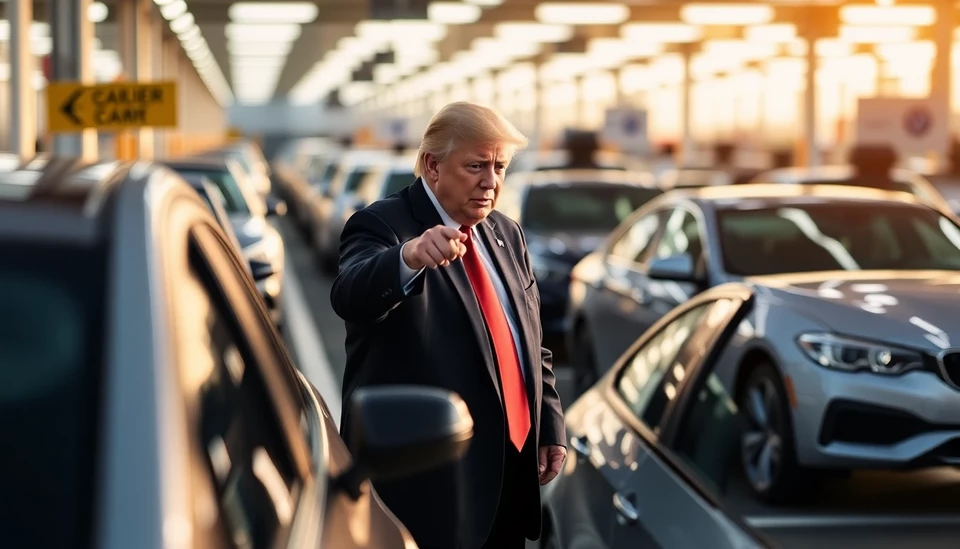
In a significant announcement, former President Donald Trump revealed his plans to introduce new tariffs on imported automobiles, emphasizing that this move is expected to take effect around April 2, 2025. This decision comes as the auto industry faces ongoing challenges and scrutiny regarding its reliance on foreign manufacturing.
Trump's statement, made during a recent campaign event, indicates a continued commitment to protect American manufacturing jobs and promote domestic production. He argued that the introduction of such tariffs would bolster the American automotive industry, which has seen fluctuations and increased competition from international markets.
The proposed tariffs are anticipated to target a wide range of automobiles, particularly those produced outside the United States. This initiative aligns with Trump’s broader campaign message focused on “America First,” seeking to invigorate American companies by creating a distinctly competitive advantage for domestic manufacturers.
Industry experts have already begun to analyze the potential impacts of these tariffs. Many predict that the tariffs could lead to higher prices for consumers and potentially strain relations with major trading partners. Economic analysts have noted that while the tariffs might provide short-term relief for domestic automakers, they could also escalate trade tensions and ignites repercussions in other sectors.
Trump's announcement reignites discussions around trade policies initiated during his presidency, where he had previously imposed tariffs on steel and aluminum which significantly affected various industries. This new tariff plan for automobiles may exacerbate those prior issues, as automakers and suppliers brace for a potential shift in market dynamics.
As the April deadline approaches, various stakeholders in the automotive sector are voicing their concerns. From manufacturers to dealership owners, there is a palpable tension surrounding the implications of such tariffs. While some hope for a revitalization of American jobs, others worry that increased costs could lead to reduced sales and a downturn in the economy.
With the presidential election approaching, Trump's tariff proposal may also be viewed as a strategy to galvanize support among voters who prioritize American jobs and national manufacturing. This could play a critical role in shaping the political landscape as candidates position themselves on trade-related issues.
In conclusion, the proposed tariffs on auto imports demonstrate a pivotal moment for the American automotive industry. As companies and consumers prepare for potential price hikes and market adjustments, the ramifications of Trump's intent will be closely monitored leading up to the April implementation date.
#TrumpTariffs #AutoIndustry #AmericanManufacturing #TradePolicy #Election2024
Author: Laura Mitchell




